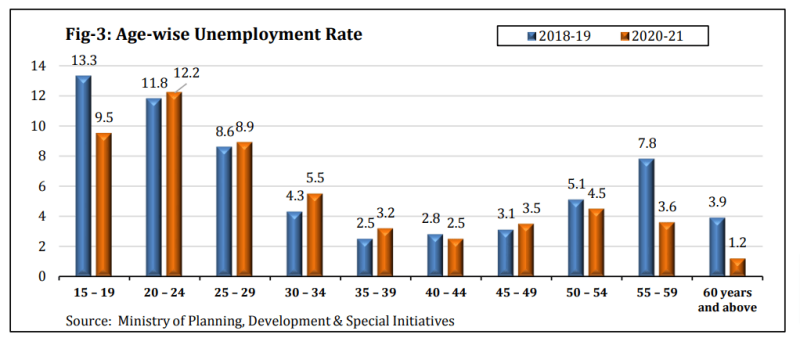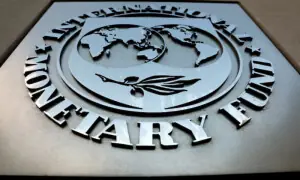Are young Pakistanis falling out of love with university degrees?
5 min readMost Pakistani mummies and daddies hold the undying belief that their offspring must graduate with a university degree if they want to get a good job. Their children are, however, less convinced that higher education holds all the answers to material prosperity.
Recent statistics show that over 209 public and private institutes are producing around 500,000 university graduates each year, say researchers according to a paper titled, ‘Incidence of educational mismatch and earning in Pakistan’. “However, with the expansion in higher education, there appears to be the paradox of graduate unemployment.” The educated unemployment (higher education and diploma) has increased significantly from 6.52% in 2003–2004 to 18.82 in 2017–2018. That is a lot of unemployed BAs in the market.
The graduates emerge with their degrees to find that what they spent four years on did not prepare them for the job market. This is blamed on the quality of education provided. Thousands of University of Karachi graduates go unemployed every year.
- Our labour force increased to 71.76M in 2020-21
- Unemployment rate is 6.3% in 2020-21
- 4.51M people could not get job in FY2021
Some people argue that you get a better education at private institutions. “I have friends from private universities who are doing very well, having relevant resources, exposure, and courses,” says Razi Wani, a third-year university student who has been working at a reputable media house for over a year. “Public university teachers, on the other hand, have no knowledge about the advancements in their field. They don’t know how fast the world is changing and they’re not interested in change either.” He found that visiting faculty was more knowledgeable than permanent faculty. The latter, especially in media, had little to no practical experience. “I still remember seniors from my major, who didn’t even know how to write a basic script.”

But it is not always the case that a private university can be assumed to provide a stronger academic experience. At one private university in Karachi for a long time, two faculty members were teaching the bulk of courses over four years in media studies. A new head of department decided to shake things up and started to engage actual practicing journalists to come in as visiting faculty.
This is why more newer students in public universities, specifically Gen Z youth, are choosing to develop practical skills and build a portfolio. There is frustration they aren’t receiving the kind of training they will need in a job market. One of the most heartbreaking examples would be of Economics graduate Arsalan Ahmed, who after being unable to find any jobs with his degree, ended up setting up a fast food stall at the University of Karachi.

More and more young people are attracted to the thinking that it is better to be self-made. The rise of freelancing platforms (especially during Covid) proved to this generation that they could earn well without a BA. Take the example of Shifa Rajput, a freelancer on Fiverr and a third-year student. She learned graphic design from YouTube videos when she was 18. She now funds her studies and living expenses on her own and has earned up to one million rupees in two years.
Maria Shahid is a communications specialist at the Punjab Skills Development Fund that provides vocational training. “Nowadays, employers around the world including Pakistan are looking for employees who have a skill, for example, coding and writing,” she says. Soft skills are also valued. “Soft skills are now being acknowledged as integral for your professional life, skills such as emotional intelligence, leadership skills, communication skills, etc.”
“Degrees, especially from universities such as LUMS or Harvard still hold a lot of value, because people still respect their brand. But the trend is changing. Of course, there’s no guarantee who will get a job and who won’t but if you come from a privileged background, you do have more of a chance of breaking into a field.”

Graduates who do land jobs, however, have to start at very low salaries, some of which barely skim by the minimum wage. It should come as no surprise, therefore that many students want to leave the country. A study at Aga Khan Medical University showed that 90% of the students planned on leaving.
That’s not to say that there is no hope if you didn’t start early, Roshail Khan is a research assistant for a production house founded by Junaid Akram. They focus on educational, media and international content and have a podcast that hosts A-listers, including Imran Khan.
“When I started my first year at university, I realized that we aren’t taught the necessary skills that are required for the current job market. So, I started to build my portfolio,” he says. “I was interested in filmmaking, so I would film things with my friends and started learning how to use Illustrator and Premiere Pro at home. I eventually got better at experimenting and that experience landed me multiple fellowships. I would learn things at those fellowships that even many of our graduates don’t know about.”
The writer is a second-year student at the University of Karachi majoring in English Literature and Linguistics
For the latest news, follow us on Twitter @Aaj_Urdu. We are also on Facebook, Instagram and YouTube.



























Comments are closed on this story.